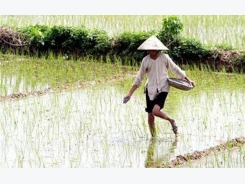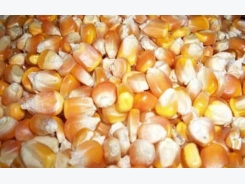Vietnam applies SRP rice production standards to increase competitiveness

Farmers in the Mekong Delta Region are welcoming the news that the rice production model pursuant to the Sustainable Rice Platform (SRP) standards will be continued.
The model was initiated by the Loc Troi Group, a leading provider of agricultural services and products in Vietnam, the World Bank’s IFC, the International Rice Research Institute (IRRI), and the International Sustainable Rice Forum.
The program has been piloted for two crops, and has boosted local farmers’ incomes.
Le Ngoc Linh of Tan An hamlet in Kien Giang province is one of the households piloting the SRP model.
He said he has higher returns from the family’s 4.5 hectares, about US$260 per hectare, thanks to strictly conforming to advanced production rules, using minimal pesticide, and reducing costs.
“All the criteria are tough but beneficial to farmers. The application has created many differences. The new model provides offers an international standard of 46 criteria to replace our old ways of farming. The use of pesticides is one example. The SRP standards say pesticides must not leave a residue on the final product. Farmers must be aware of the issue and gradually change their old farming practices if they want a sustainable production,” Linh said.
Participants in the pilot program said the 46 requirements seemed hard to follow at first but during the pilot process, the Loc Troi Group’s agriculturists have worked side by side with farmers teaching them new farming techniques and practices.
Duong Van Chin, President of the Dinh Thanh Agriculture Research Center of the Loc Troi Group, said “After training, the farmers see the program’s benefits. Plant protection waste is not seen in the fields anymore because now they understand that proper waste collection is good for the environment, productivity, and their own health. I believe the model will soon spread to other localities and made Vietnam’s rice production more sustainable and efficient.”
The pilot program shows that applying SRP standards can boost farmers’ incomes, benefit the community, and protect the environment.
Huynh The Nang, President of the Vietnam Food Association, underlined the involvement of businesses, especially following the success of the Loc Troi Group’s pilot model.
“I hope members of the Vietnam Food Association will study the SRP standards and work with the Loc Troi Group to scale up application of the criteria towards building a Vietnamese rice brand of high quality and competitiveness in international markets,” Nang said.
In the next two years, the program will train 4,000 farmers in the Mekong Delta in new farming practices that improve rice quality, boost productivity, and protect the environment.
Có thể bạn quan tâm
Phần mềm

Phối trộn thức ăn chăn nuôi

Pha dung dịch thủy canh

Định mức cho tôm ăn

Phối trộn phân bón NPK

Xác định tỷ lệ tôm sống

Chuyển đổi đơn vị phân bón

Xác định công suất sục khí

Chuyển đổi đơn vị tôm

Tính diện tích nhà kính

Tính thể tích ao hồ




 The potential of rice power
The potential of rice power  Thai Binh attracts many investment projects in agriculture
Thai Binh attracts many investment projects in agriculture